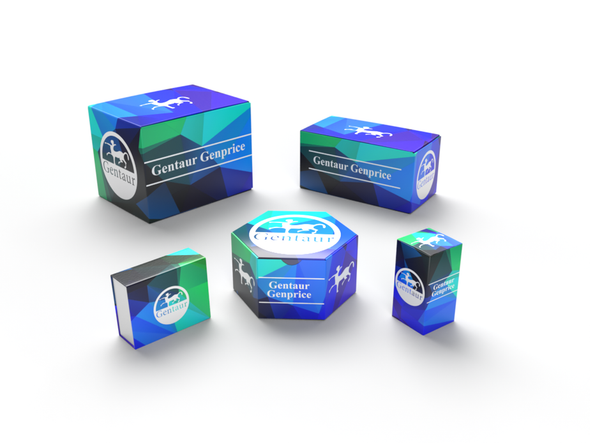Description
DHCR7 Antibody | 13-839 | Gentaur UK, US & Europe Distribution
Host: Rabbit
Reactivity: Human, Mouse
Homology: N/A
Immunogen: A synthetic peptide of human DHCR7
Research Area: Cancer, Signal Transduction
Tested Application: WB, IHC, IF
Application: WB: 1:500 - 1:2000
IHC: 1:50 - 1:100
IF: 1:50 - 1:100
Specificiy: N/A
Positive Control 1: HepG2
Positive Control 2: U-87MG
Positive Control 3: HeLa
Positive Control 4: MCF7
Positive Control 5: Mouse brain
Positive Control 6: Mouse kidney
Molecular Weight: Observed: 56kDa
Validation: N/A
Isoform: N/A
Purification: Affinity purification
Clonality: Polyclonal
Clone: N/A
Isotype: IgG
Conjugate: Unconjugated
Physical State: Liquid
Buffer: PBS with 0.02% sodium azide, pH7.3.
Concentration: N/A
Storage Condition: Store at 4˚C. Avoid freeze / thaw cycles.
Alternate Name: 7-dehydrocholesterol reductase, 7-DHC reductase, Putative sterol reductase SR-2, Sterol Delta (7) -reductase, DHCR7, D7SR
User Note: Optimal dilutions for each application to be determined by the researcher.
BACKGROUND: This gene encodes an enzyme that removes the C (7-8) double bond in the B ring of sterols and catalyzes the conversion of 7-dehydrocholesterol to cholesterol. This gene is ubiquitously expressed and its transmembrane protein localizes to the endoplasmic reticulum membrane and nuclear outer membrane. Mutations in this gene cause Smith-Lemli-Opitz syndrome (SLOS) ; a syndrome that is metabolically characterized by reduced serum cholesterol levels and elevated serum 7-dehydrocholesterol levels and phenotypically characterized by mental retardation, facial dysmorphism, syndactyly of second and third toes, and holoprosencephaly in severe cases to minimal physical abnormalities and near-normal intelligence in mild cases. Alternative splicing results in multiple transcript variants that encode the same protein.






